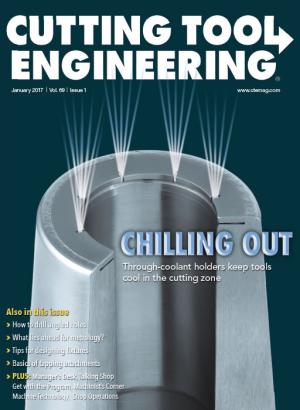On the one hand, many employers in the manufacturing industry view millennials as being self-absorbed, unfocused, disloyal, addicted to mobile devices and lazy. On the other, most millennials don’t view a career in manufacturing as something they want to pursue.
In a 2014 online survey of 1,009 adults from ages 19 to 33 by Deloitte/Manufacturing Institute, manufacturing ranked seventh in preference as a career choice. Technology came in first, followed by health care, financial services, retail, communications and energy.
If manufacturers are having a tough time finding workers today, the situation is only going to become more challenging as baby boomers continue to retire in droves and the U.S. is theoretically poised to add millions of great-paying manufacturing jobs while the unemployment rate is less than 5 percent.
The reason this generation of some 80 million people don’t desire working in a production plant probably has less to do with having a negative perception about the work environment, pay and job security and more to do with not having much of a perception at all about the manufacturing industry.
“In my high school, there were zero programs in metalcutting, and that goes the same for any high school in the Denver area,” said 23-year-old Camoren Schley, president of Denver-based Industrial Coolant Systems LLC. “None of my friends have any idea what CNC machines are. The best thing to do is get programs set up in public schools.” (For more about Schley’s company and products, read "High-pressure holemaking" in the Productive Times section of the January 2017 issue.)
He was exposed to manufacturing through his father, Roger, who troubleshoots and repairs machine tools. “After going around with him for a couple of years and working on some equipment I didn’t care for, I came up with all kinds of ideas for products,” Schley said.
His entrepreneurial spirit propelled him along a rewarding career path, but Schley said others around his age who want to work in a machine shop are turned away because they don’t have the required skill set, even though they are willing to learn. However, he added that “a few of the really good manufacturers” will hire inexperienced workers who have a positive attitude and spend the time and effort to teach them. “In 3 to 4 years, they have good machinists.”
Other millennials take a less-direct route to the machining world but are glad they eventually discovered the opportunities it provides. One is 28-year-old Greg Serio, a manufacturing consultant who runs TPOMFG LLC, Dunedin, Fla. The name stands for The People of Manufacturing. Serio said he grew up in a heavily agricultural community where he wasn’t exposed to manufacturing. He dropped out of nursing school before landing a job with a distributor of metalworking equipment and eventually starting his own company, which focuses on education. “If I had known [good manufacturing jobs] existed 5 years prior, maybe I would’ve jumped into the trade a hell of a lot quicker,” Serio said.
“Just give them that opportunity to succeed” he said about millennials. “They don’t know that it’s there because it’s never been presented to them.”
And regarding the stereotype about millennials’ work ethic, sometimes what’s perceived as a negative behavior might just be a different way of working. “Millennials stare into their smartphones 6 hours a day, but they also coordinated an entire schedule or did an entire thesis on it,” Serio said. “They can do incredible things with a 4"×6" device.”
Related Glossary Terms
- computer numerical control ( CNC)
computer numerical control ( CNC)
Microprocessor-based controller dedicated to a machine tool that permits the creation or modification of parts. Programmed numerical control activates the machine’s servos and spindle drives and controls the various machining operations. See DNC, direct numerical control; NC, numerical control.
- coolant
coolant
Fluid that reduces temperature buildup at the tool/workpiece interface during machining. Normally takes the form of a liquid such as soluble or chemical mixtures (semisynthetic, synthetic) but can be pressurized air or other gas. Because of water’s ability to absorb great quantities of heat, it is widely used as a coolant and vehicle for various cutting compounds, with the water-to-compound ratio varying with the machining task. See cutting fluid; semisynthetic cutting fluid; soluble-oil cutting fluid; synthetic cutting fluid.
- metalcutting ( material cutting)
metalcutting ( material cutting)
Any machining process used to part metal or other material or give a workpiece a new configuration. Conventionally applies to machining operations in which a cutting tool mechanically removes material in the form of chips; applies to any process in which metal or material is removed to create new shapes. See metalforming.
- metalworking
metalworking
Any manufacturing process in which metal is processed or machined such that the workpiece is given a new shape. Broadly defined, the term includes processes such as design and layout, heat-treating, material handling and inspection.


